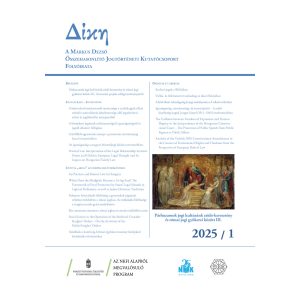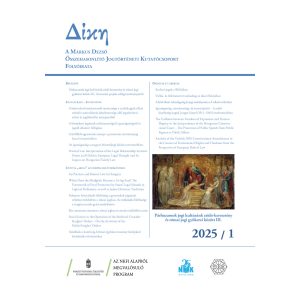Szerző: Takács Levente
Pécsi Tudományegyetem Állam- és Jogtudományi Kar 2025
Az eredeti nyelvű leírás hiányzik.
*****
The late ancient compilation, known as the Collatio legum Mosaicarum et Romanarum was composed in an age when different religious and legal cultures (Jewish, Christian, Roman) influenced and competed with each other. It is an intriguing task to examine how slavery, a very controversial social institution, was represented in this comparative work of Jewish and Roman legislation, which is thought to have been written at the end of the 4th century. There is an entire chapter devoted to discussing the misconduct of slave owners, while also mentioning slaves in various other contexts. From these passages, we can assume why this work was compiled and how slavery was treated at that time.
A részletes adatlapot a képre vagy a címre kattintva érheti el.
Ingyenesen letölthető, open access kiadvány
















